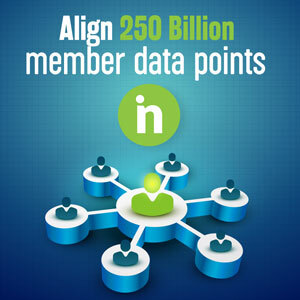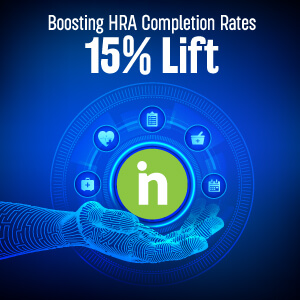Elevating Member Experience: Proven Tactics for Medicare Advantage Success in 2025
In 2025, the landscape of Medicare Advantage (MA) plans has experienced notable shifts, particularly in member satisfaction and Star Ratings. The Centers for Medicare & Medicaid Services (CMS) has more emphasis on member experience, with satisfaction and experience measures now constituting a significant portion of the Star Ratings (57%). This change underscores the importance of MA plans prioritizing member satisfaction to achieve higher ratings and associated benefits.
Decline in Star Ratings
Recent data reveals a decline in the quality ratings of MA plans. For the 2025 plan year, only seven MA plans received an overall 5-star rating, a significant drop from 38 in 2024. Additionally, only 40% of MA prescription drug plans achieved a score of four or five stars, compared to 43% in the previous year1. This downward trend highlights the growing challenges plans face in meeting the heightened expectations set by CMS.
Impact on Major Insurers
The decline in Star Ratings has had tangible effects on major insurers. For instance, Humana experienced a substantial decrease in its ratings, with only 25% of its members in plans rated four stars or higher for 2025, down from 94% in 20242. This reduction affects member perception and has financial implications, as higher-rated plans receive quality bonus payments from CMS.
So, what can MA plans do to stop this downward spiral?
The Role of Technology in Enhancing Member Satisfaction
Technology has become a cornerstone in how MA plans approach member satisfaction. Tools like predictive analytics, real-time data collection, and AI-driven insights provide the means for health plans not only to meet but exceed member expectations.
Here’s how technology is driving transformation in the member experience:
Predictive Analytics for Proactive Care
Advanced analytics, powered by artificial intelligence (AI) and machine learning (ML), allow MA plans to predict member behaviors and needs. For instance, these tools can identify members likely to disengage or report dissatisfaction. By analyzing historical data, social determinants of health (SDOH), and member interaction patterns, predictive models flag potential issues before they occur.
For example, Insightin Health’s inGAGE™ platform uses AI to create member personas that predict satisfaction levels, enabling plans to implement tailored interventions. Proactive outreach, like reminding members of upcoming screenings or addressing known pain points, strengthens trust and loyalty.
Real-Time Data for Immediate Action
Real-time data collection and analysis provide MA plans with an ongoing pulse on member satisfaction. This dynamic insight goes beyond annual surveys, enabling continuous improvement. Platforms that integrate real-time feedback loops help plans swiftly identify and address areas of dissatisfaction. For instance, if many members struggle with telehealth access, the data allows plans to prioritize improvements in that service.
Real-time tracking also empowers health plans to address minor issues—such as wait times for customer service—that can snowball into larger dissatisfaction drivers. By tackling these problems early, plans ensure a seamless and positive experience for members.
Personalization Through Natural Language Processing (NLP)
Natural Language Processing (NLP) tools extract actionable insights from member interactions through call center transcripts, online reviews, or social media comments. NLP enables plans to “listen” to members at scale, identifying recurring concerns or unmet needs.
For example, Insightin Health’s solution might detect dissatisfaction with appointment scheduling processes and suggest system-wide improvements. By addressing these issues preemptively, MA plans to reduce complaints while fostering member loyalty.
Next Best Action (NBA) Recommendations
One of the most promising technological advancements is the ability to generate Next Best Action (NBA) recommendations. These personalized recommendations guide healthcare plans on the best steps to improve individual member satisfaction. Actions might include recommending nearby in-network providers, scheduling transportation for an appointment, or suggesting wellness programs based on a member’s health data.
The beauty of NBA is that it combines predictive insights with actionable steps, empowering health plans to act decisively and improve satisfaction metrics. For example, a member flagged as “at risk” for dissatisfaction due to lack of engagement could receive a personalized outreach campaign tailored to their preferred communication method.
Workflow Automation for Efficiency
Technology also enhances operational efficiency through workflow automation. Automated systems streamline routine tasks, such as sending appointment reminders, updating member profiles, or generating reports for compliance purposes. This ensures that health plans can dedicate more resources to high-value interactions, directly improving the member experience.
Holistic View of Member Engagement
Integrating structured and unstructured data sources allows MA plans to create a comprehensive view of each member. Insightin Health emphasizes uniting disparate data streams into a single platform, like demographic information, clinical history, and member feedback. This 360-degree perspective helps plans deliver more effective care and services, addressing the unique needs of every member segment.
Enhanced Collaboration with Providers
Technology also strengthens relationships between MA plans and healthcare providers. Integrating systems between the two ensures seamless communication and a shared understanding of member needs. For instance, a provider receiving real-time updates about a member’s dissatisfaction can adjust care strategies accordingly, improving outcomes and satisfaction simultaneously.
With the right technology in place, MA plans are ready to address their members’ unique needs. But technology is only part of the equation. Plans must pair these tools with intentional improvement strategies to fully realize their potential.
Strategies for Improvement
While technology provides the foundation, success depends on how it is applied. To maximize the impact of advanced tools and improve member satisfaction, MA plans should consider the following actionable strategies:
Data Integration
Consolidating structured and unstructured data into a unified platform creates a holistic view of each member. This integration allows health plans to design highly personalized interventions that address individual needs and preferences.
Predictive Analytics
Using AI-driven tools to analyze member data helps identify trends and anticipate needs. For example, health plans can predict which members may benefit from targeted wellness programs or increased engagement through outreach campaigns.
Personalized Engagement
Tailored communication strategies considering member demographics, preferences, and behaviors can significantly improve satisfaction. This might include SMS reminders for tech-savvy members or phone calls for older, less tech-friendly populations.
Continuous Monitoring
Regularly assessing member feedback and satisfaction levels enables health plans to make timely adjustments. Continuous monitoring also allows organizations to track the effectiveness of interventions and refine strategies as needed.
When paired with advanced technology, these strategies enable MA plans to deliver measurable improvements in member satisfaction and Star Ratings. But beyond the metrics, it’s about fostering trust, loyalty, and better outcomes for the members who rely on these plans.
Conclusion
The evolving landscape of Medicare Advantage demands a renewed focus on member satisfaction and experience. CMS’s increased emphasis on these measures is a clear signal that the future of healthcare lies in putting members first.
By leveraging technology like predictive analytics, real-time data, and NBA recommendations and pairing these tools with actionable strategies, MA plans can deliver more personalized, proactive, and impactful care.
The road ahead may be challenging, but with the right tools and a commitment to member-centric care, MA plans can elevate their Star Ratings and, more importantly, deliver care that truly makes a difference. After all, it’s not just about asking the right questions—it’s about answering them with purpose.






